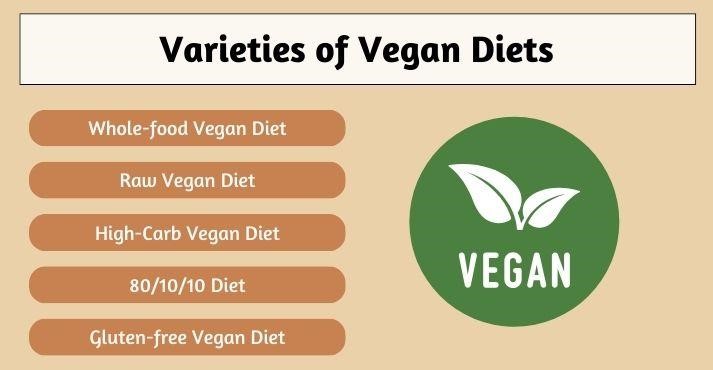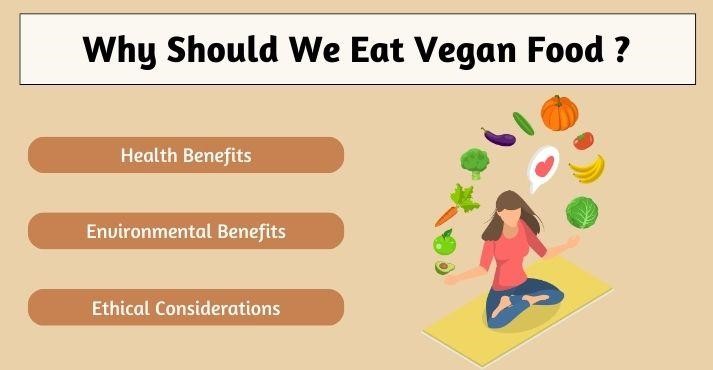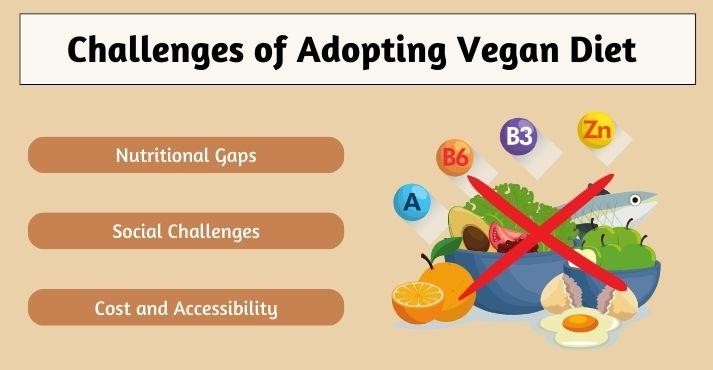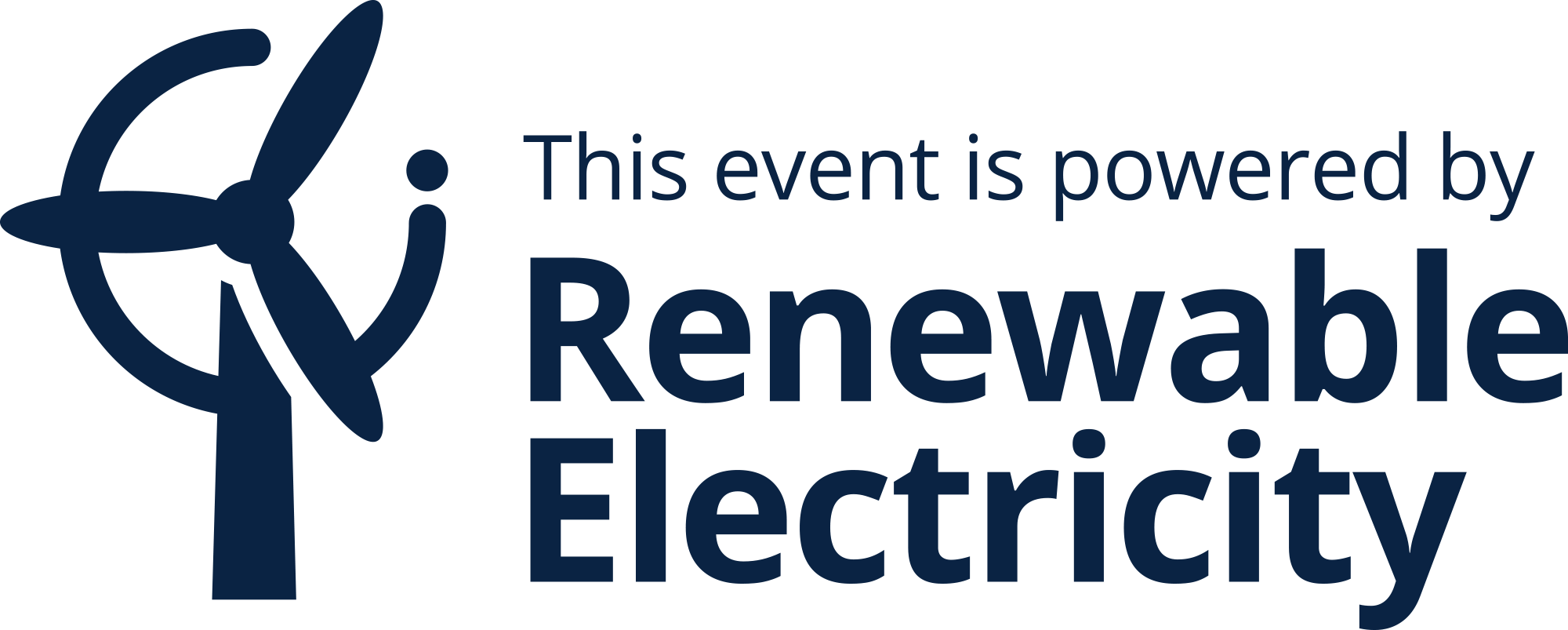Veganism is on the rise globally, and Singapore is no exception.
According to a report by Statista, the number of people adopting plant-based diets, including veganism, has grown by more than 46% in Singapore in recent years. But what is vegan food, and why are so many people choosing this lifestyle?
Veganism is a dietary and lifestyle choice that excludes all animal products, including meat, dairy, eggs, and even honey.
People in Singapore are turning to veganism for various reasons, including ethical concerns for animal welfare, the desire to reduce environmental impact, and personal health benefits.
Vegan food plays a significant role in this shift toward sustainability and better health as more consumers become aware of the positive outcomes for their bodies and the planet.
What is Vegan Food?

In the simplest terms, vegan food consists entirely of plant-based ingredients, with no animal products or derivatives. This means no meat, poultry, fish, dairy, eggs, or other animal by-products.
Vegan foods contain fruits, vegetables, grains, legumes, nuts, and seeds. They provide all the nutrients for a balanced diet, including plant-based proteins, vitamins, and minerals.
The vegan movement has grown significantly in Singapore, with more people adopting plant-based diets for health, environmental, and ethical reasons. Popular vegan foods are now available in supermarkets, restaurants, and hawker centers.
With increasing awareness of the environmental impact of animal agriculture, more people in Singapore are choosing vegan alternatives.
Innovative brands and eateries also support veganism in Singapore. For instance, Singapore is home to the world’s first lab-grown meat company, Shiok Meats, which focuses on creating sustainable alternatives to seafood.
Additionally, plant-based meat products from brands like Impossible Foods and Beyond Meat have gained popularity, offering delicious and sustainable options for those seeking to reduce their animal consumption.
Types of Vegan Diets

While veganism is often thought of as a singular diet, there are several variations that people in Singapore and around the world follow. Each type of vegan diet foods focuses on different aspects of nutrition and lifestyle.
1. Whole-food Vegan Diet
A whole-food vegan diet focuses on unprocessed, natural plant-based foods, such as fruits, vegetables, whole grains, nuts, and seeds. This approach to healthy vegan eating is particularly beneficial for those looking to maximize nutrient intake.
Whole foods provide essential vitamins, minerals, and fiber while minimizing the intake of processed ingredients. In Singapore, many health-conscious individuals follow this diet for its benefits, including lower cholesterol and improved heart health.
2. Raw Vegan Diet
The raw vegan diet involves eating foods in their natural, uncooked state or cooking them at very low temperatures. The idea behind this diet is that raw foods retain more nutrients and enzymes, which are lost when food is heated.
In Singapore, some vegan cafés offer raw vegan options, such as cold-pressed juices and raw salads, catering to those who prefer this method of healthy vegan eating.
3. High-Carb Vegan Diet
A high-carb vegan diet focuses on consuming large quantities of carbohydrates, primarily from plant-based sources like fruits, whole grains, and vegetables. This diet is lower in fat and emphasizes foods high in fiber and complex carbs, which are beneficial for long-lasting energy.
In Singapore, physically active people or athletes may adopt this diet to maintain their energy levels through vegan foods.
4. 80/10/10 Diet
The 80/10/10 diet is a low-fat, raw vegan approach that focuses on getting 80% of daily calories from carbohydrates, 10% from protein, and 10% from fat.
This diet typically includes a large intake of raw fruits, leafy greens, and some raw nuts or seeds. It’s not as common in Singapore, but a niche community follows this eating style for its perceived detoxifying benefits.
5. Gluten-free Vegan Diet
A gluten-free, vegan diet is essential for people who follow a vegan lifestyle but also need to avoid gluten due to allergies or intolerances to allergens.
In Singapore, gluten-free options have become more widely available in grocery stores and restaurants, making it easier to follow a vegan diet without gluten. Gluten-free grains like quinoa, rice, millet, legumes, and vegetables form the core of this diet.
Top Vegan Foods You Can Eat
Singapore offers various vegan food options, making enjoying a healthy and balanced diet easy. Here’s a list of vegan foods that you can incorporate into your daily meals:
- Fruits and Vegetables: These are the most common vegan foods and provide essential vitamins, minerals, and fiber. Fruits like bananas, apples, mangoes, and vegetables such as spinach, carrots, and broccoli, are staples of a vegan diet.
- Whole Grains: Grains like brown rice, quinoa, and oats are rich in fiber and nutrients. Whole grains are important to healthy vegan food as they provide long-lasting energy and improve digestion.
- Legumes: Beans, lentils, and chickpeas are excellent plant-based protein sources. They also contain fiber, iron, and B vitamins, making them essential for anyone following a vegan diet.
- Nuts and Seeds: Nuts like almonds and walnuts and seeds like chia and flaxseeds provide healthy fats, protein, and fiber. These vegan foods are perfect for snacking or adding to salads and smoothies.
- Dairy Alternatives: Plant-based alternatives to dairy, such as almond milk, soy yogurt, and coconut-based cheese, are becoming increasingly popular in Singapore. These vegan food options allow people to enjoy familiar flavors while sticking to a vegan diet.
- Meat Alternatives: Vegan meat substitutes like tofu, tempeh, and seitan are rich in protein and can be used in various dishes. In Singapore, brands like Beyond Meat and Impossible Foods have introduced delicious plant-based burgers and sausages that replicate the taste and texture of meat.
Vegan vs. Vegetarian
Although veganism and vegetarianism are often grouped, there are important distinctions between the two diets, particularly in their approach to animal products.
1. Animal Products
The primary difference between veganism and vegetarianism is the complete exclusion of animal products in a vegan diet.
Vegan foods do not contain meat, poultry, fish, or animal by-products such as dairy, eggs, or honey. A vegetarian diet typically excludes meat and poultry but allows for consuming dairy products and eggs.
- Vegans: Exclude all animal-derived ingredients and products.
- Vegetarians: Avoid meat and poultry but may consume dairy, eggs, and honey.
2. Dairy and Eggs
Another key difference lies in the consumption of dairy and eggs. Vegetarians often consume dairy products like milk, cheese, yogurt, and eggs as part of their diet.
In contrast, vegans avoid these products altogether and instead opt for vegan food options such as plant-based milk (like almond or oat milk) and dairy alternatives such as coconut yogurt or cashew cheese.
In Singapore, the growing availability of dairy alternatives in supermarkets and cafés, such as soy milk, oat milk, and almond milk, provides more options for vegans.
Popular plant-based brands such as Oatly and Silk have made it easier for consumers to enjoy their favorite beverages and meals without compromising their vegan lifestyle.
Benefits of Vegan Food

A plant-based diet offers numerous benefits, making it an attractive option for many people in Singapore. These benefits are not just limited to health but also environmental sustainability and ethical concerns.
Let’s explore the main reasons why more people are opting for a vegan diet.
1. Health Benefits
Healthy vegan food is packed with essential nutrients that can promote overall well-being. Vegan diets are often rich in fiber, vitamins, and antioxidants while lower in saturated fats and cholesterol.
Focusing on whole vegan foods like fruits, vegetables, legumes, and whole grains, vegans can maintain a balanced diet that supports heart health and weight management and even reduces the risk of chronic diseases such as diabetes and high blood pressure.
In Singapore, healthcare professionals have recognized the potential health benefits of adopting a vegan diet. Many nutritionists recommend incorporating more plant-based meals into daily life to enhance health and reduce the risk of heart disease and obesity.
- Lower cholesterol levels: A plant-based diet is naturally cholesterol-free, reducing the risk of cardiovascular disease.
- Weight management: Vegan diets tend to be lower in calories, which can support healthy weight loss.
- Improved digestion: High fiber content in fruits, vegetables, and whole grains promotes better digestive health.
2. Environmental Benefits
Switching to a vegan diet can also have a significant positive impact on the environment. Animal agriculture contributes to deforestation, water pollution, and greenhouse gas emissions.
People can help reduce their carbon footprint and conserve natural resources by choosing vegan foods.
In a densely populated country like Singapore, reducing the reliance on imported meat and dairy products by adopting plant-based diets can have far-reaching environmental benefits.
Moreover, initiatives like Singapore’s Green Plan 2030 encourage sustainable food practices, and vegan food options are becoming a key part of this effort.
- Reduced greenhouse gas emissions: Animal farming is responsible for many methane emissions, and reducing meat consumption can lower these emissions.
- Conservation of water: Producing plant-based foods uses significantly less water than raising livestock.
- Land use efficiency: Plant-based farming requires less land, which helps preserve natural habitats and biodiversity.
3. Ethical Considerations
For many people in Singapore, the ethical aspect of veganism is one of the most compelling reasons for adopting this lifestyle.
The vegan philosophy is based on avoiding harm to animals by excluding animal products from the diet. This philosophy applies not only to food but also to other areas, such as clothing and cosmetics.
Animal welfare concerns have driven many individuals to explore vegan food options that do not involve the exploitation or mistreatment of animals.
As more people become aware of the cruelty in factory farming, the shift toward vegan diet foods continues to grow.
Challenges of Eating Vegan

Despite the many benefits of a vegan diet, transitioning to or maintaining a vegan lifestyle may involve some challenges. These challenges include potential nutritional gaps, social considerations, and the accessibility of vegan foods.
1. Nutritional Gaps
While a well-planned vegan diet can provide all the essential nutrients, some people may lack certain vitamins and minerals, particularly vitamin B12, iron, and omega-3 fatty acids.
Vitamin B12 is mostly found in animal products, so vegans need to ensure they get enough of it through fortified foods or supplements. Similarly, omega-3s, typically derived from fish, can be sourced from plant-based foods like flaxseeds, chia seeds, and algae supplements.
In Singapore, health professionals often recommend that vegans pay close attention to their nutrient intake by incorporating fortified foods, such as nutritional yeast and plant-based milk, or considering supplements to avoid deficiencies.
- Vitamin B12: Found in fortified foods like cereals and plant-based milk.
- Iron: Legumes, spinach, and tofu are good plant-based iron sources.
- Omega-3: Chia seeds, flaxseeds, and algae oils are excellent vegan sources.
2. Social Challenges
Eating out as a vegan can sometimes be challenging, especially when dining with family or friends who follow a non-vegan diet.
While Singapore has a growing number of vegan and vegetarian restaurants, finding vegan food options at traditional eateries, hawker centers, or social gatherings can still be tricky.
However, the rise of plant-based dishes in Singapore, including plant-based meat options at major fast-food chains like Burger King and McDonald’s, is making it easier for vegans to enjoy meals.
- Dining with non-vegans: Social gatherings may not always have ample vegan food options, so planning or bringing your own food is necessary.
- Hawker centers: Some hawker stalls now offer plant-based dishes, but choices can still be limited.
3. Cost and Accessibility
Another challenge is the perception that vegan foods are more expensive than traditional diets. While certain processed vegan products, like plant-based meats or specialty items, can be pricier, a diet centered around whole foods such as legumes, grains, and vegetables is often affordable.
In Singapore, the increasing availability of affordable vegan food options in grocery stores and markets is helping to alleviate this concern.
- Processed vegan foods: Items like plant-based meats and dairy alternatives can be more expensive.
- Whole foods: Fruits, vegetables, legumes, and grains are cost-effective and widely available in local markets.
Conclusion
What is vegan food? At its core, it’s a dietary choice that excludes all animal products and promotes the consumption of plant-based foods. In Singapore, veganism is growing rapidly, driven by health-conscious consumers, ethical considerations, and environmental concerns.
With innovative vegan food options such as plant-based meat, dairy alternatives, and a variety of whole foods, more people are discovering the benefits of a vegan lifestyle.
Despite the challenges, from nutrient gaps to social considerations, veganism is becoming increasingly accessible, thanks to government support and businesses like Impossible Foods and Beyond Meat.
As more Singaporeans incorporate into this movement, healthy vegan eating is set to play a vital role in creating a more sustainable and compassionate future.













